
Written by Kemi Adedoyin
With so many official languages in Africa, no one has ever heard of N|uu to be considered as an official language.
Once spoken freely across the arid plains of the Northern Cape, N|uu predates all languages by thousands of years. It is one of the oldest known languages that shaped how the ǂKhomani San people understood the world. Today, only one person speaks it fluently: a 90-year-old woman named Ouma Katrina Esau.
She is the last echo of a language that has survived colonization, forced assimilation, and near-erasure.
A Language That Carries Time
N|uu belongs to the Tuu family of click languages, spoken by the ǂKhomani San people, who are indigenous hunter-gatherers and whose history stretches back over 20,000 years. If you’re wondering who the San people are, think of the Africans or the main actor in the movie “The Gods Must be Crazy”.
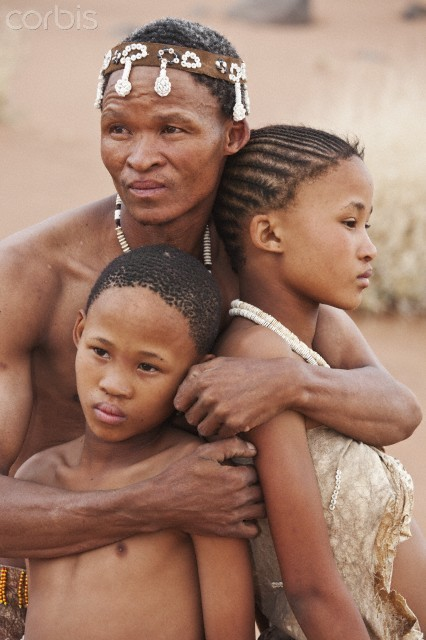
The language is considered a highly endangered language complex, boasting over 100 distinct phonemes, including five different types of clicks. Each sound, each rhythm, holds cultural and ecological knowledge passed down orally through generations.
Erasure by Force
But like many Indigenous languages, N|uu was nearly extinguished not by time, but by policy.
Colonial expansion in southern Africa violently displaced the San from their lands. Then came apartheid, which classified the ǂKhomani as “Coloured,” erasing their ethnic identity and forcing them into Afrikaans-speaking communities. San children, including Ouma Katrina, were forbidden from speaking their mother tongue in school. Many were beaten for it. Over time, younger generations lost the language entirely, not out of choice, but out of fear and shame.
By the late 20th century, N|uu had all but disappeared. It was widely assumed to be extinct.
But in the early 1990s, researchers discovered that several elderly San women in the Northern Cape still spoke it haltingly, privately, and with deep emotion. Among them was Katrina Esau, who had never received a formal education but held within her a full, living memory of the language.

A Personal Mission Becomes Global
After the death of her sister Anna in 2021, Ouma Katrina became the last known fluent speaker of N|uu. For most people, this would be a burden too heavy to carry. But for her, it became a mission.
With the help of her granddaughter, Claudia Snyman, and the support of a small group of linguists and cultural workers, Ouma Katrina began teaching basic N|uu to local children. She introduced a new generation to a language they’d never heard, but that belonged to them.
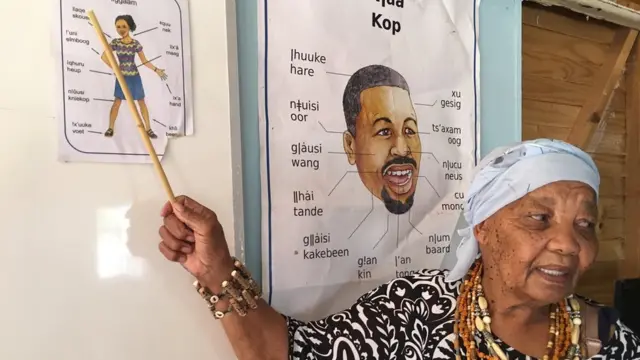
She also worked with experts to create a digital N|uu dictionary, developed learning materials and co-authored a children’s book, Qhoi n|a Tijho (Tortoise and Ostrich), written in N|uu and English. Her voice has been recorded and archived, capturing pronunciation, tone, and cadence.
For her efforts, she has received multiple national honors, including the Order of the Baobab (Silver), and was awarded an honorary doctorate from the University of Cape Town in 2023. But accolades mean less to her than the children who now know how to say “hello” or sing a lullaby in N|uu.
The Fragility of One Voice
Despite her work, the reality remains sobering that there are no other fluent speakers. Children are learning basic words and phrases, but none have achieved fluency. The challenge is immense. A language that evolved over millennia cannot be revived in a decade, especially without systemic support, government funding, or integration into formal education systems.
Still, the fact that N|uu exists at all today is nothing short of remarkable. And it exists because of one woman’s refusal to let it vanish.
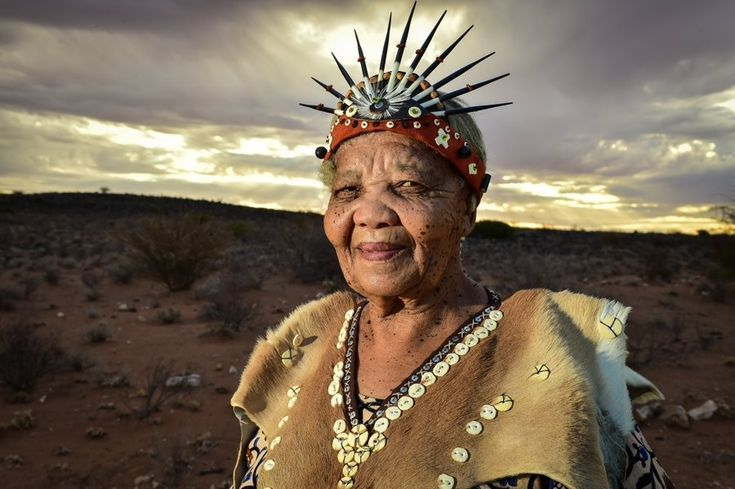
What’s at stake is more than words. When a language dies, an entire way of seeing the world disappears with it. Ecological knowledge, oral history, philosophy, humor, spirituality – all embedded in the structure of a language- are lost. The erosion of N|uu mirrors a global crisis; nearly half of the world’s 7,000 languages are at risk of extinction by the end of the century. Most of them are Indigenous. Most are unrecorded. Most will be lost silently.
What Is Lost When a Language Dies?
Losing a language is not just a linguistic tragedy, it is the loss of a worldview. Languages shape how people relate to nature, time, memory, and each other. The disappearance of languages like N|uu also raises critical questions about what development and modernity have cost Indigenous communities, whose cultural knowledge has often been dismissed in favor of colonial languages and frameworks.
A Legacy Beyond Language
Ouma Katrina’s work has transformed her from a quiet matriarch into a cultural icon. But she doesn’t see herself that way. To her, teaching N|uu is about restoring dignity to herself, to her people, and to the land that shaped them.
She often says she is not fighting for herself but for future generations. For the children who will one day know who they are not just by what they see, but by what they say and how they say it.
If the clicks of N|uu survive, even in fragments, they will carry her voice. And that voice will remind the world that no language, no matter how endangered, is truly dead until we stop listening. N|uu is also a cautionary tale. It shows how the survival of a language may come down to one person’s determination.


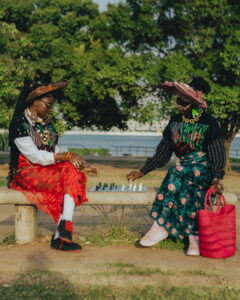
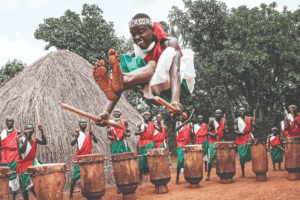




Don’t miss a thing! Sign up to get new content sent directly to your inbox.